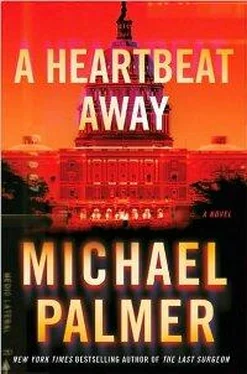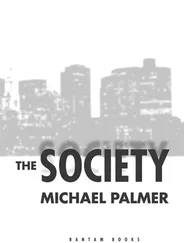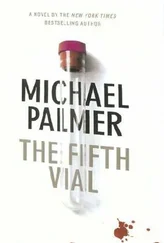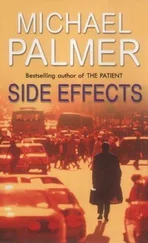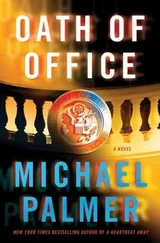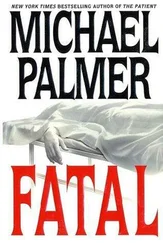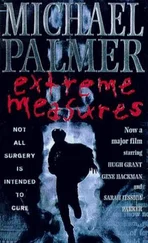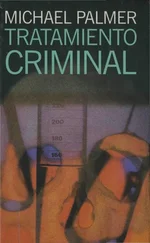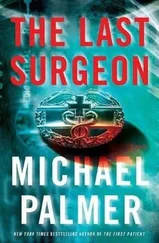Angie heard sirens blaring in the background and watched with widening eyes as the commotion unfolding within the camera’s view intensified. She remembered having the same sickening feeling when the first reports of the 9/11 attacks began trickling in. Something truly horrible was taking place now as it did back then.
“Where are you exactly, John?” she asked. “What sort of attack was it? Is anybody hurt? When did it happen?”
“Slow down, Angie. Slow down.”
“Are you sure it was Genesis?”
“Angie, I’m afraid I’m going to die. I’m afraid we’re all going to die.”
Angie’s heart beat faster.
“I want to help you, John. Just try and help me help you.”
“O … okay.”
“How did the attack occur? How was the virus delivered? Did you see it?”
Davis coughed. Angie shivered at the sound. Was that a symptom of the infection?
“I saw it. There were like misty plumes of smoke coming out of people’s bags and briefcases and purses, from some sort of microbomb, it sounded like. Massachusetts Congresswoman Dawn Bloom, two rows in front of me, had one go off right beside her.”
Angie stuffed her gloves inside her laptop case, and dropped in the ChapStick, half a dozen pens, and another notebook.
“What’s happening now?”
Davis partially stifled another cough.
“The president has ordered everybody back to their original seats. He’s blocked the doors with armed guards. Angie, I’m really scared. You know more about bioweapons than anybody I know. What the hell could it be? Oh, shit, I think they’ve spotted my phone. I’m going to keep talking as long as I can.”
“John, I’ll do whatever I can to find out and help.” Davis coughed again—deep, moist, and racking. “John, are you okay? Talk to me!”
“They’re here for my phone.… Listen, you bastards! This is America. We have laws. You can’t do this!”
The line went dead.
DAY 1
11:00 P.M. (EST)
The small group remaining in the Hard Room exchanged surprised looks except for Gary Salitas, whose attention remained fixed on Allaire.
The friendship between the two men dated back nearly twenty-five years, to the meeting of a select presidential commission on drug abuse in the inner city. The meeting, one of a number of such showcases to which Salitas had been invited over the years, was also among the more frustrating, with each of the political and academic lights determined to impress or outdo the others in terms of their rhetoric and posture.
Just when Salitas had been wondering if he could endure the rest of the afternoon, a lean, angular man stood up without asking to be recognized and began to speak. His name plaque read JAMES ALLAIRE, M.D.; CLEVELAND, OHIO, and he was angry. He was angry that people were speaking of Latin American cartels and minimum prison terms, of deposing dictators and passing stiffer new laws; of more presidential select commissions. But not once had anyone mentioned the abject hopelessness of inner-city children. Not once had anyone suggested a connection between drug use and classroom size. Not once had anyone offered the blueprint for a partnership between business, industry, and programs designed to provide every one of those children with a computer.
Allaire spoke for less than five minutes that day, but his eloquence, conviction, and the power of his words were unforgettable. And by the time the physician from Ohio had finished his remarks, gathered his notes, and strode from the room, Gary Salitas had vowed to hitch his wagon to the man’s star.
To this day, not once had Salitas regretted that decision.
“I will explain as much as I can in a moment,” the president began. “First, though, I want to be certain you know Jordan Lamar.” He nodded toward the stocky, baby-faced man several seats to Salitas’s right. “Jordan’s official title is architect of the Capitol. Jordan, this is my personal physician, Dr. Bethany Townsend, head of the White House Medical Unit.”
“We’ve met,” Lamar said, shaking Townsend’s hand and making certain that she knew the fifth member of the group, Hank Tomlinson, the chief of the fifteen-hundred-member Capitol Police force.
“Okay, then,” Allaire said. “Between the two of them, these men know every detail of the Capitol complex, from the surrounding topology to the nature and location of the facilities, passageways, and points of entry and egress. As of this moment, I am ordering a joint operation, to be conducted between the Capitol Police Board, represented by Jordan and Hank, and the military, coordinated by Secretary Salitas. It will be known as Operation Guardian Eagle, and its goal will be the neutralization of what Genesis has done here tonight.”
“And what does that have to do with the military?” Tomlinson asked.
“The remaining Joint Chiefs of Staff will assist us with Guardian Eagle. But they will be strictly on a need to know basis, and my orders will be transmitted to them through Secretary Salitas. As of now, the only people to be made fully aware of Guardian Eagle are seated right here in this room. Is that understood? Good. Gary, I’m authorizing you to deputize any military, National Guard, or other federal law enforcement officials you deem necessary. FBI, NSA, CIA—you have all of our personnel and resources at your disposal.”
“Yes, sir,” Salitas said.
“I want a secure perimeter established around the entire Capitol complex. Station sharpshooters and flamethrowers facing every exit. Jordan will make sure you don’t miss any. Use barricades to establish a secondary perimeter to keep the public back. Use force if need be to accomplish that.”
“Understood.”
The president turned away momentarily, gathering his composure. When he turned back, his jaw was set, his lips bloodless.
“One more thing,” he said. “Anybody who leaves this building, and I mean anybody, including every one of us, is to be given one verbal warning and only one to go back inside. Then they are to be shot dead on the spot, and their body immediately incinerated and disposed of as biohazard.”
DAY 1
11:10 P.M. (EST)
Shoot to kill.
Incinerate the bodies.
Allaire understood, as did the others in the Hard Room, that the president of the United States had just used his power as commander in chief to authorize the cold-blooded murder of civilians. Disbelieving stares penetrated his defenses, and for a moment he sensed he might be close to breaking down. He flashed on a photograph of John Kennedy during the Cuban Missile Crisis. From the many accounts he had read, it seemed that the young president handled the defining event of his administration with a steely outward resolve. Judge Prime Minister Nikita Khrushchev correctly and save the planet. Misjudge the man and millions get consumed in a nuclear firestorm.
But this crisis wasn’t about missiles. This was about WRX3883. And although President Jim Allaire’s decision to quarantine the Capitol had the potential to save millions from a raging pandemic, in all likelihood, he and his family weren’t going to be among them.
If only he had quashed the idea at the very beginning. If only he had simply listened to Dr. Sylvia Chen’s proposal and sent her away.
Allaire hoped that he looked like a man of strength and assuredness. If he lost control and the crowd in the House Chamber started to surge toward the exits, there was no telling what the virus floating in the air and taking root in their bodies would do in the outside world.
He could not allow that to happen.
He had to select words that would keep the crowd at bay. He had to choose how much information to share, and just how to say it.
Читать дальше
